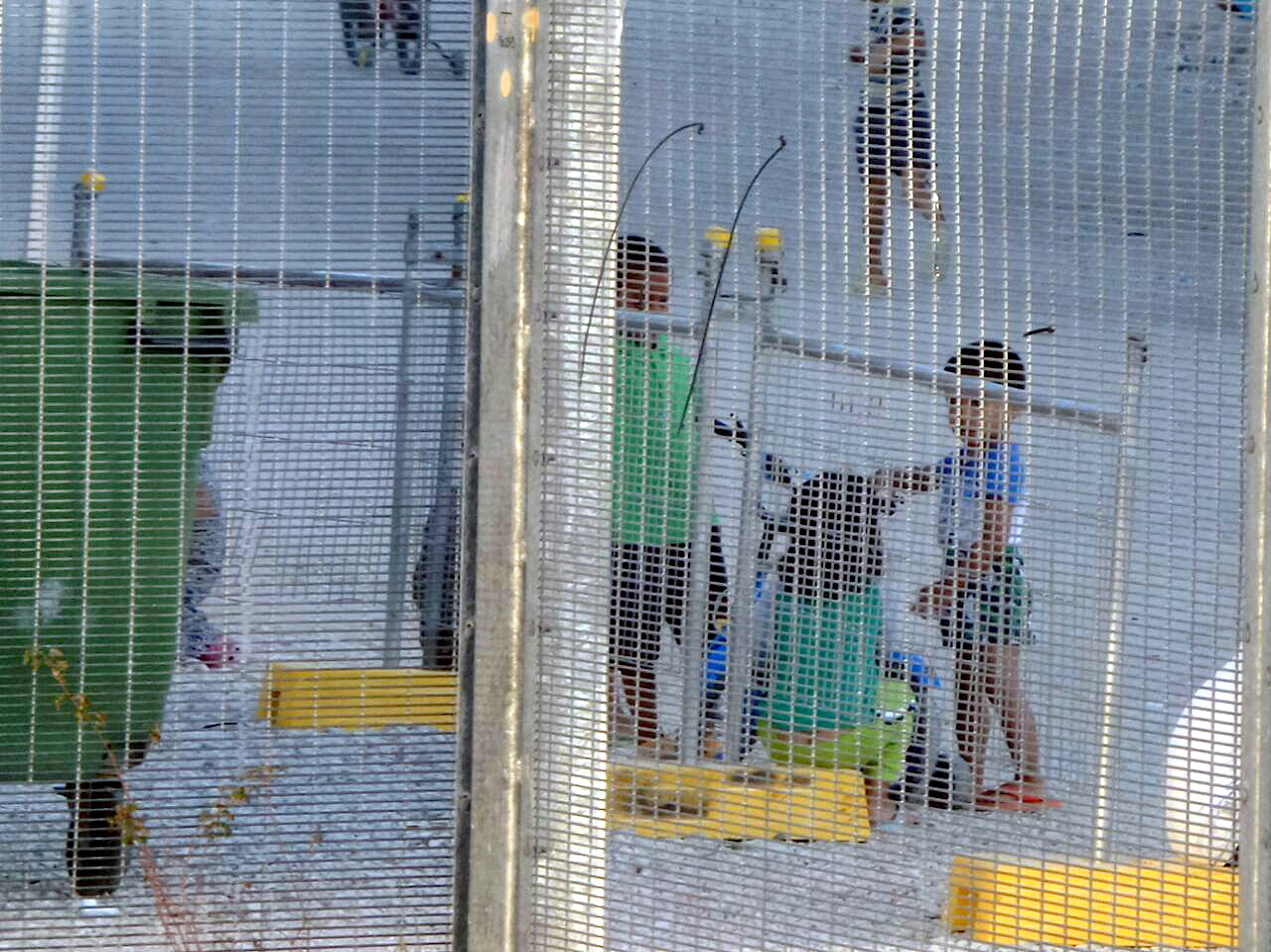By Colin Packham
SYDNEY (Reuters) – Many of the 410 asylum seekers held on a tiny Pacific Island are being driven to attempt suicide to escape the prison-like conditions they face in indefinite detention on behalf of Australia, rights group Amnesty International said on Monday.
Under Australia’s tough immigration policy, asylum seekers intercepted trying to reach the country by boat are sent for processing at a camp in Nauru or to Manus Island in Papua New Guinea (PNG) and are not eligible for resettlement in Australia.
“I met children as young as nine who had already tried to kill themselves and were talking openly about ending their lives,” said Anna Keistat, an Amnesty official, who is one of a handful of international observers to have visited Nauru.

An undated supplied image from Amnesty International claiming to show children playing near a fence at the country’s Australian-run detention centre on the Pacific island nation of Nauru. Amnesty International/Handout via REUTERS
“Their parents were talking about hiding everything, sharp objects, pills, and not allowing them to leave the house, because they were so worried their children would end their lives,” said Keistat, who spent six days in Nauru in August.
Amnesty said that 58 detainees, or about 15 percent of the total on Nauru, to whom it spoke for its report, had either attempted suicide or have had thoughts about harming themselves.
A spokesman for Australia’s immigration minister did not immediately respond to a request for comment on the report.
Many of the 410 men, women and children Australian figures show to have been in detention on Nauru by August 31 have been confirmed as refugees and have been there for several years.
Despite the refugee status, they continue to be confined to poor accommodation with little access to medical care, Amnesty said, adding that children, who make up little more than a tenth of the number of detainees, suffer disproportionately.
Amnesty joins a chorus of criticism of Australia’s immigration policy from human rights groups, and comes just weeks after the United Nations said Nauru was failing to protect children.
International condemnation of Australia was stoked after more than 2,000 incidents, including sexual abuse, assault and attempted self-harm, were reported in about two years at an Australian detention center in Nauru, more than half involving children, the Guardian said.
Australia seeks to organize resettlement of the asylum seekers, Prime Minister Malcolm Turnbull has said. But with Australia unable to convince a third party to take them, the future of the detainees remains in question.
Australia’s detention center in Papua New Guinea (PNG) faces greater pressure, after PNG’s Supreme Court in April ordered its closure. The 823 men held on Manus Island have been given limited freedom, but they remain detained.
(Reporting by Colin Packham; Editing by Clarence Fernandez)
 Anna Neistat, Senior Director for Research with Amnesty International, talks to journalists as she holds a copy of a report she co-authored titled 'Island of Despair - Australia's "Processing" of Refugees on Nauru' in Sydney, Australia, October 17, 2016 that concludes many of the 410 asylum seekers held on the tiny Pacific Island are being driven to attempt suicide to escape the prison-like conditions they face in indefinite detention on behalf of Australia. REUTERS/David Gray
Anna Neistat, Senior Director for Research with Amnesty International, talks to journalists as she holds a copy of a report she co-authored titled 'Island of Despair - Australia's "Processing" of Refugees on Nauru' in Sydney, Australia, October 17, 2016 that concludes many of the 410 asylum seekers held on the tiny Pacific Island are being driven to attempt suicide to escape the prison-like conditions they face in indefinite detention on behalf of Australia. REUTERS/David Gray



